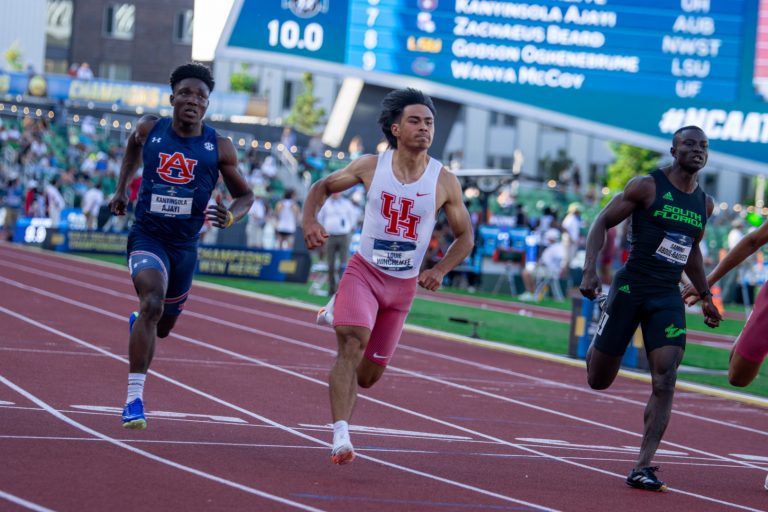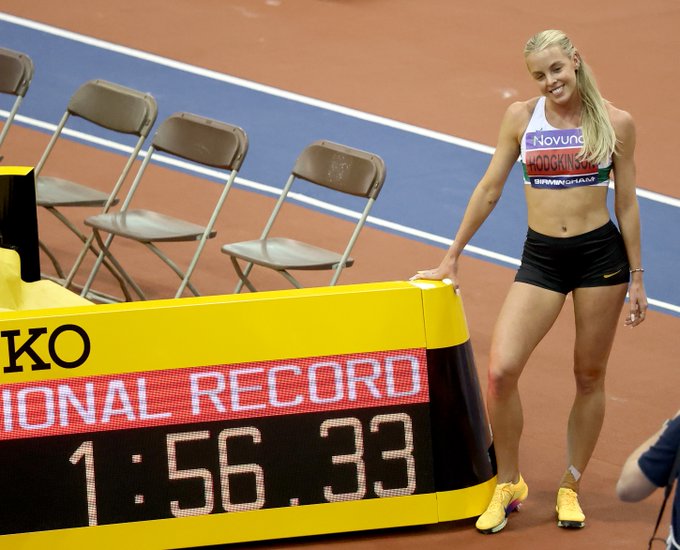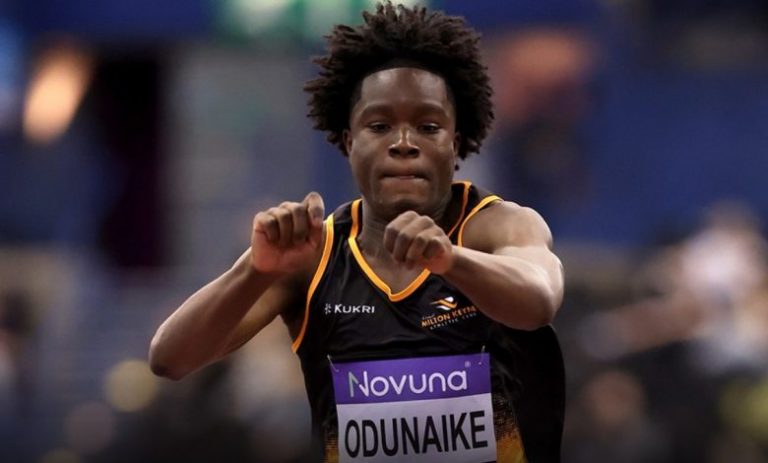The 2025 European Indoor Athletics Championships in Apeldoorn, Netherlands, have come to an end, marked by some impressive performances from British athletes. Despite being without many of their top stars due to injury or a decision to skip the indoor season, the results highlighted the determination and unity of the British team, blending individual brilliance with a strong sense of teamwork. Notably, the silver medals earned were a testament to the athletes’ competitive spirit and tactical awareness, further solidifying their position among Europe’s elite.

The 60m Men’s Event: The Pinnacle of British Performance.
The 2025 European Indoor Championships will forever be remembered for the exploits of Jeremiah Azu, who claimed gold in the 60m, and Andrew Robertson, who at 34, secured the first individual medal of his career. Azu’s explosive start and commanding final push saw him cross the line in 6.49 seconds, a new personal best and the leading European time of the season. This victory was historic, making Azu the first British man to win the 60m title since Richard Kilty’s gold in 2017. But Azu wasn’t alone in the spotlight: his teammate, Robertson, also etched his name into the history books by taking the bronze medal with a time of 6.55, the second-fastest time of his career. This British sprint double was a standout moment for the team, showcasing the strength of British sprinting on the European stage. Azu, visibly emotional after his victory, credited his family for their unwavering support, saying, “I’m a family man, and without them, I wouldn’t be here.” He also acknowledged that this success was just the beginning, with much more to come. Meanwhile, Robertson, who had faced disappointment in previous European finals, was thrilled with his performance, stating that, while the race hadn’t been perfect, he was “incredibly proud” of his achievement.
George Mills: Silver Snatched in a Thrilling Race.
In the men’s 3000m final, all eyes were on reigning champion Jakob Ingebrigtsen from Norway, who lived up to his favourite status by winning gold. But it was Britain’s George Mills who made a lasting impression by securing the silver medal in a race where strategy played a key role. From the start, the pace was slow as the athletes sized each other up. With 600 metres to go, Ingebrigtsen surged ahead, but Mills stuck to his task and battled for second place. Despite being distanced by the Norwegian, Mills held firm and finished in 7:49.41, a solid silver medal performance. While the gold was out of reach given Ingebrigtsen’s dominance indoors, Mills was pleased with his resilience, although he couldn’t hide his slight disappointment that the win had seemed within his grasp. Fellow Brit James West finished fifth with a time of 7:51.46.
Melissa Courtney-Bryant: Silver Just Shy of Gold.
The women’s 3000m race also provided its fair share of drama, with Britain’s Melissa Courtney-Bryant in fine form. The pace started off easy, but the race came alive as the athletes hit the final two kilometres. Courtney-Bryant showed impressive strength and endurance, staying at the front of the pack. As she neared the finish line, it looked like she might claim victory, but Ireland’s Sarah Healy launched a decisive sprint in the final 100 metres. Healy’s burst of speed caught Courtney-Bryant off guard, and although she fought hard, the British athlete took silver in 8:52.92, just six-hundredths of a second behind the gold. While Courtney-Bryant was understandably disappointed not to hang on to her lead, she quickly acknowledged her pride in staying in the hunt and securing a medal after such a fierce battle. It was her third career European Indoor medal, following bronze in 2019 and 2023.
Jade O’Dowda and the Pentathlon: A Frustrating Fourth Place, But Promising.
In the pentathlon, Jade O’Dowda impressed with a solid performance but narrowly missed out on a medal, finishing in fourth place. She set personal bests in the early events, but fatigue caught up with her in the 800m, where she failed to break into the medal positions, finishing just 20 points shy of the podium. Nonetheless, O’Dowda showed resilience throughout the competition, and her coach highlighted her significant potential, noting her steady progress despite several setbacks in previous seasons. With more experience and health, O’Dowda could become a real force on the international stage.
Women’s 4x400m Relay: Silver with a Bitter Aftertaste.
The British women’s 4x400m relay team ended the competition on a high note, securing the silver medal in a thrilling final. The team, made up of Amber Anning, Hannah Kelly, Lina Nielsen, and Emily Newnham, showed great cohesion and grit throughout the race. Nielsen started strong, setting a solid pace for the team, with Kelly and Newnham continuing to defend their position. Anning, in the final leg, fought hard, but it was a dramatic final 400m where the Dutch team, led by Femke Bol, surged ahead. Despite a controversial situation where the Dutch relay was initially disqualified for an infringement before being reinstated, the British team finished second with a time of 3:24.89, setting a new national record. The race was a symbol of teamwork and solidarity, as the British women proved they’re ready to compete with the very best in Europe. However, the disqualification debate surrounding the Dutch team’s victory cast a shadow over what was a stunning performance, as a mishandled baton exchange earlier in the race had initially cost them the gold.
The final exchange of the European Indoor Championships women's 4x400m. #Apeldoorn2025
— Travis Miller (@travismillerx13) March 9, 2025
Cathelijn Peeters obstructing Amber Anning leading to a DQ until Netherlands were reinstated after a counter-protest.pic.twitter.com/zYv7v7rdZ6



